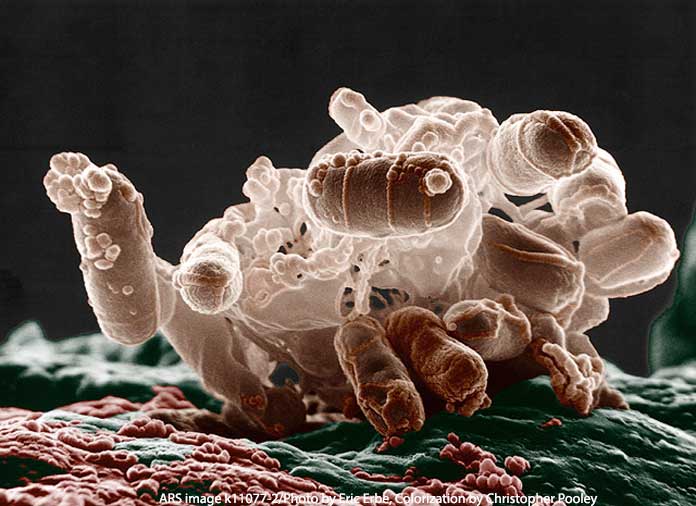In the December 2016 issue of Emerging Infectious Diseases, the Centers for Disease Control and Prevention have published a paper studying pigeons as a reservoir for VT2f-producing E. coli bacteria that can cause hemolytic uremic syndrome (HUS). Scientists at several universities around the world used whole genome sequencing to characterize E. coli strains from human patients with diarrhea or HUS and from healthy pigeons.

Verotoxigenic Escherichia coli (VTEC) infections in people can cause illnesses that range from uncomplicated intestinal illnesses to hemolytic uremic syndrome. Damage to the intestines and blood vessels in the kidneys can cause serious illness and death. Verotoxins include shiga toxins made by E. coli bacteria and enterohemorrhagic E. coli.
A phage was discovered that conveyed the vtx2f genes and provided evidence that strains causing milder diarrheal illness can be transmitted to people from pigeons. This finding is important because pigeons can be ubiquitous in populated areas and could contaminate water supplies or food served at restaurants. These animals and other wild birds can also contaminate farm fields with E. coli and other pathogenic bacteria. In addition, this study points out that animals that harbor VTEC bacteria include cattle, deer, pigs, horses, cats, dogs, and wild birds.
And in fact, HUS E. coli outbreaks in the past in the United States have been linked to produce. A large E coli outbreak this year was linked to recalled General Mills flour, which is a raw agricultural product. In that outbreak, at least 63 people were sickened in 24 states. Seventeen people were hospitalized, and one person developed HUS.
This fall, an E. coli outbreak was associated with the Louisburg Kansas Cider Mill Ciderfest that was held at an apple farm. Seven laboratory-confirmed cases of E. coli were associated with that outbreak, according to the Kansas Department of Health and Environment’s investigation.
A multistate outbreak of Shiga toxin-producing E. coli O157 infections were linked to alfalfa sprouts produced by Jack & The Green Sprouts in early 2016. Eleven people were sickened in two states: Minnesota and Wisconsin. Two of those patients were hospitalized, but no one developed HUS.
The authors in the EID study concluded that the VT2f-producing E. coli isolates from HUS cases have the complete set of virulence genes described in the typical HUS-associated VTEC. These findings could indicate that the VT2f-producing E. coli that cause diarrhea in humans could be a subpopulation of those in pigeons.
Researchers could not determine if the HUS VT2f-producing strains are part of the pigeon intestinal flora or if they come from an acquisition of the vtx2-phage. However, they do know that human infections with VT2f-producing E. coli are zoonotic diseases transmitted from pigeons. The birds could release VT2f phages into the environment, which could lysogenize E. coli strains and give them the ability to cause HUS, or they could directly disseminate the bacteria onto sidewalks, water reservoirs, farm fields, or other areas in cities.
The symptoms of an E. coli infection include severe abdominal cramps, diarrhea that is bloody and/or watery, and a mild fever. The symptoms of HUS include little or no urine output, lethargy, easy bruising, a skin rash, and bleeding from the nose or mouth. Anyone experiencing these symptoms should see a doctor immediately.
If you or someone in your family has contracted an E. coli infection or hemolytic uremic syndrome, contact our experienced food safety attorneys for help to protect your legal rights. Call 1-888-377-8900 or fill out our free online consultation request form.